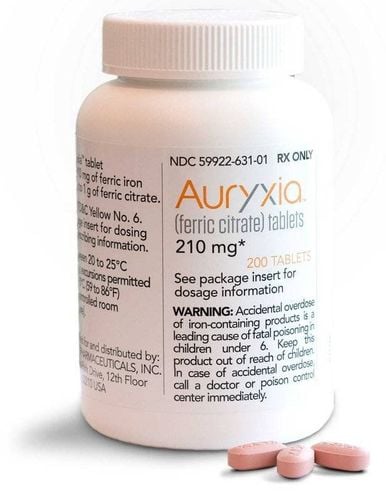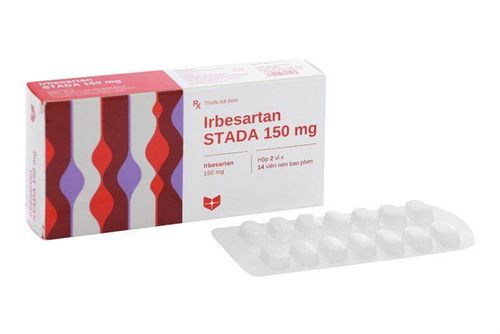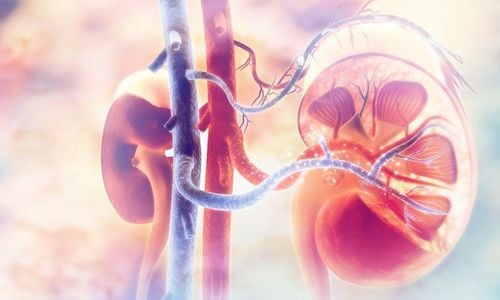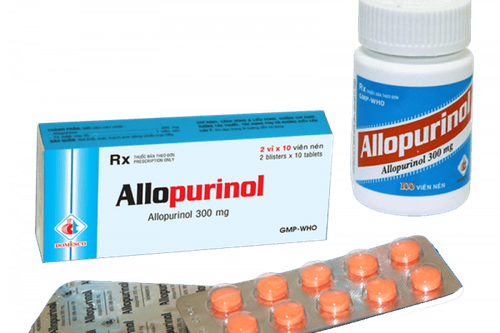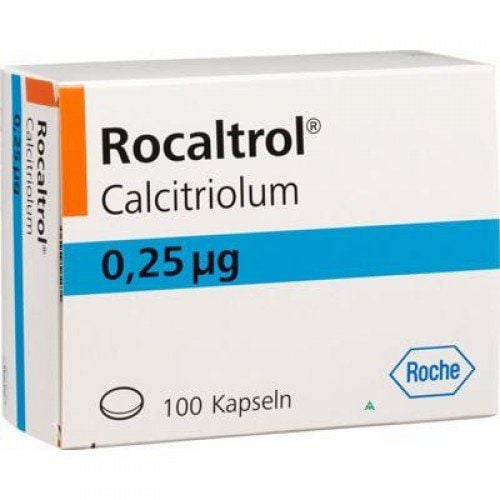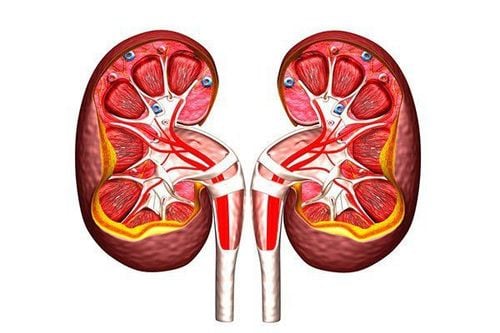This is an automatically translated article.
Doxercalciferol, trade name Hectorol, is a man-made form of Vitamin D. Drugs used to treat people with kidney disease when they have an increase in certain natural substances such as Parathyroid hormone (PTH). When the body increases PTH, it imbalances calcium and phosphorus minerals, leading to weak bones. The drug will work to reduce PTH and increase Calcium and Phosphorus to help balance minerals for the body. The drug is taken as prescribed by a doctor and sold in pharmacies nationwide.
1. What is Doxercalciferol?
Doxercalciferol is a synthetic analogue of ergocalciferol (vitamin D2). After synthesis, it undergoes metabolic activation in vivo to form lα, 25-dihydroxyvitamin D2, a naturally occurring, biologically active form of vitamin D. It blocks the synthesis and secretion of parathyroid glands.
The drug is prepared in the form of oval capsules with a light peach color, with the "r" mark on the tablet.
Indications:
Treatment of secondary hyperparathyroidism for patients on dialysis Treatment of secondary hyperparathyroidism for patients with chronic kidney disease Uses:
Helps the body use more calcium found in food products or supplements and regulate the body's production of parathyroid hormone.
2. How to use Doxercalciferol
Route of administration: Doxercalciferol is taken orally with or without food. Dosage: 3 tablets / week usually taken every other day and as directed by the doctor. Do not take more than 2g of calcium per day while you are taking this medicine including your dietary source of calcium, phosphate binders or calcium supplements. Ask your doctor or pharmacist. When you have any questions about how much calcium you take in a day, ask your doctor or pharmacist. Do not take other supplements or vitamins such as vitamin D unless otherwise directed by your doctor. Use this medicine regularly to get the most benefit from it. To help you remember, take your medicine at the same time each day for your prescribed dose. For patients receiving dialysis treatment, it is usually done three times per week on dialysis sessions. For people with chronic kidney disease who are not receiving dialysis treatment, it is usually taken 1 tablet per day. Take doxercalciferol at the same time every day for better results and to avoid forgetting to take it. In addition, the dose of the drug depends on the condition as well as the stage of the disease, the patient's treatment response to the drug.

Thuốc Doxercalciferol được dùng theo đường uống theo chỉ định của bác sĩ
3. Side effects
Cardiovascular: Slow pulse Digestive: Headache, abdominal pain, constipation, nausea, vomiting or fatigue. Nervous: Dizziness, sleep disturbance. Muscles, bones: Bone pain, muscle pain, joint pain. Metabolism and nutrition: Edema or weight gain, increased thirst, increased urination. Skin: Itching, swelling (especially face/tongue/throat). If any of these side effects persist or become more severe, tell your doctor or pharmacist for advice.
4. Precautions
Before using this medicine, tell your doctor or pharmacist if you are allergic to Vitamin D or any other substance. Tell your doctor your medical history, especially of heart problems (irregular heartbeat), liver disease, high blood calcium levels (hypercalcemia), high blood phosphate levels (hyperphosphatemia). in the blood), convulsions. Before taking Doxercalciferol, patients should be tested for vitamin D deficiency, and then treated with nutritional vitamin D first and not immediately with Doxercalciferol. Because patients with hepatic impairment may not be able to metabolize doxercalciferol liquid capsules appropriately, caution should be exercised when administering the drug to patients with impaired liver function. More frequent monitoring of PTH, calcium and phosphorus levels is required in such individuals.
5. Drug interactions
Doxercalciferol strongly interacts with some drugs: Digoxin; medicines that affect liver enzymes that remove doxercalciferol from your body (e.g., Glutethimide, rifampin, azole antifungals including ketoconazole, antibiotic macrolides including erythromycin, anticonvulsants including phenobarbital/phenytoin). Certain medications such as bile acid inhibitors (Cholestyramine/colestipol, mineral oil, orlistat) may decrease the effects of doxercalciferol if taken at the same time. Avoid taking these medicines within 2 hours before or after taking this medicine. Make sure the medication you are taking is not an antacid, laxative, vitamin, or supplement) because they may contain calcium, magnesium, phosphorus, or vitamin D.
Please dial HOTLINE for more information or register for an appointment HERE. Download MyVinmec app to make appointments faster and to manage your bookings easily.
Reference source: webmd.com



